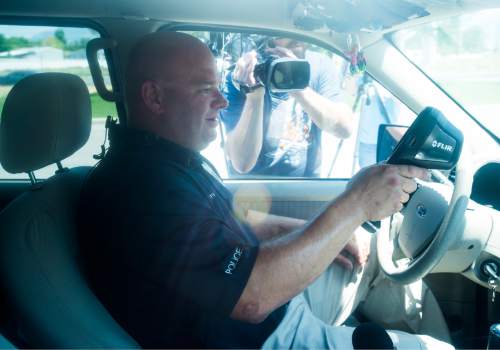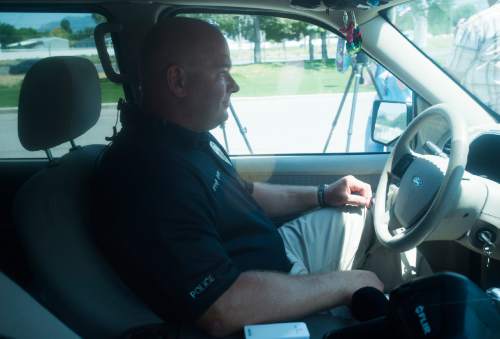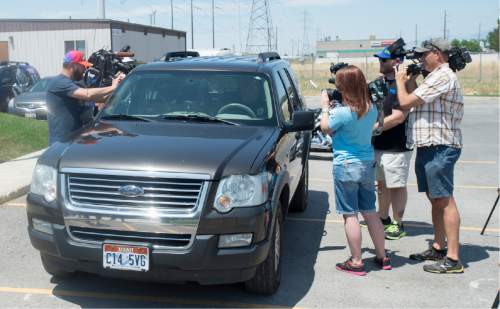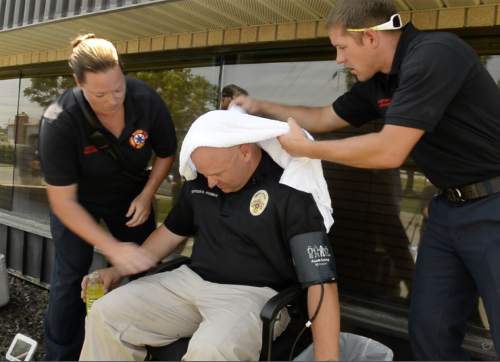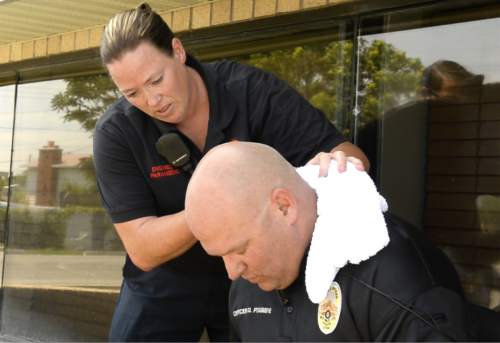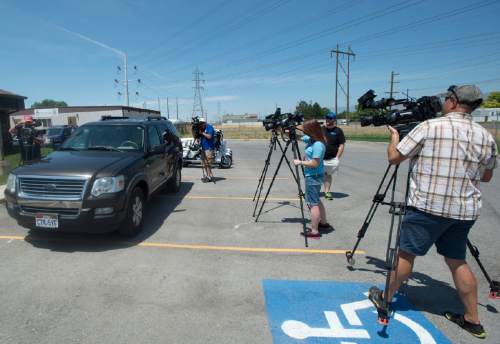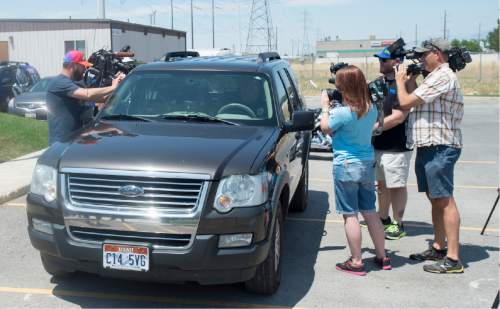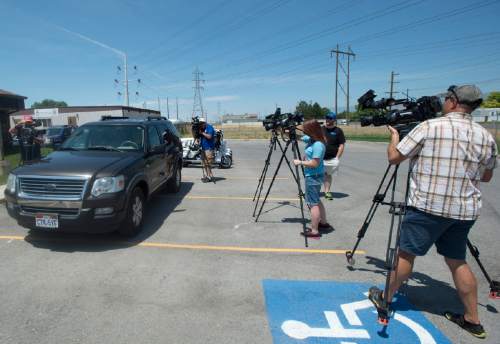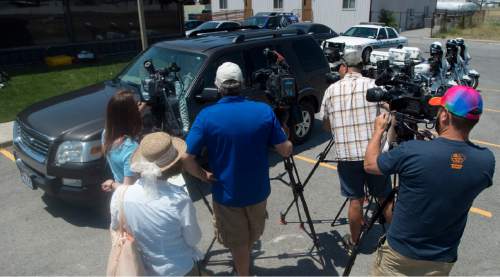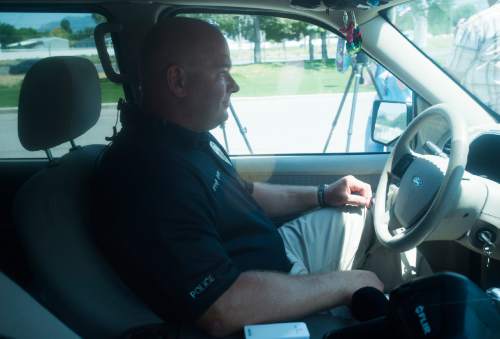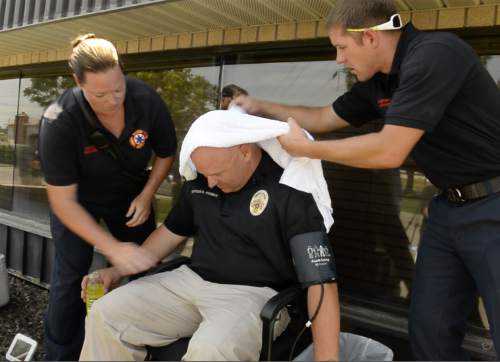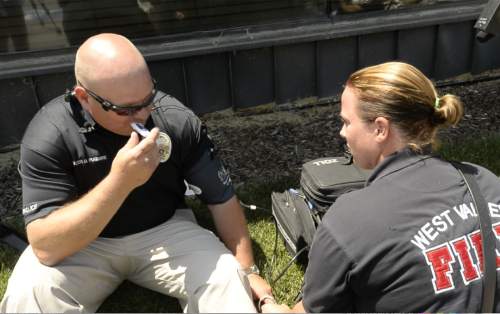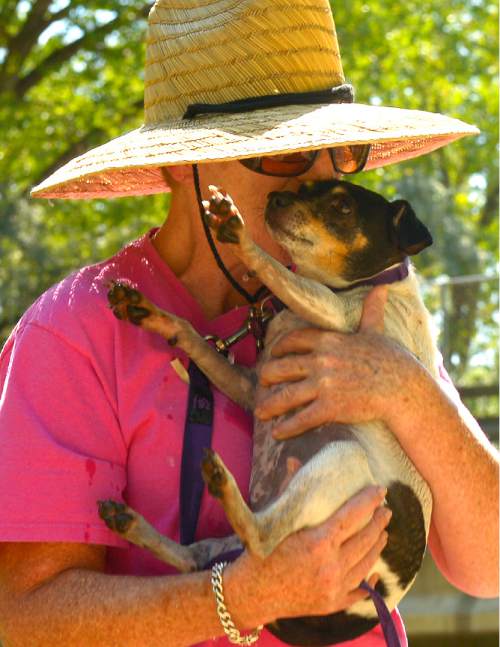This is an archived article that was published on sltrib.com in 2015, and information in the article may be outdated. It is provided only for personal research purposes and may not be reprinted.
Every summer, authorities warn about the danger of leaving children and pets in parked cars in hot weather.
Yet every year, they get calls about kids and dogs locked in a vehicle when outside temperatures are sweltering. This summer, with its triple-digit heat, has been no different.
Last Friday, a Cedar City man left his 11-month-old baby in a hot car outside his home before passing out drunk inside, St. George's The Spectrum reported. The child was found a short time later by his mother "pouring sweat from his little body," according to a police statement quoted by the newspaper.
And on Sunday, police and animal control officers responded to Park City Mountain Resort, where two dogs had been left inside an SUV in the parking lot. A passer-by had called because even though the windows were cracked, the animals were panting, police Capt. Phil Kirk said.
"It was pretty hot that day," Kirk said. "In that 90-plus temperature, it doesn't take long before the dog is in distress."
The officers found the owner, a 35-year-old Coalville man, and Summit County Animal Control cited him for cruelty to animals.
Authorities say the interior temperature of a vehicle will climb rapidly, even when parked in a the shade with the windows cracked. The West Valley City Police Department noted in a Thursday news release that just a few minutes can be extremely dangerous, even fatal, for a small child.
The department cited a study in the journal "Pediatrics" that showed a car's interior will heat up by an average of 40 degrees within an hour, regardless of ambient temperature. Eighty percent of the temperature rise occurred within the first half-hour, the department said.
To demonstrate the effect of the heat, West Valley City police Officer Dana Pugmire sat inside an SUV parked on the asphalt at a city fire station on Thursday as the temperature hovered near 100.
Within 30 seconds, Pugmire already felt the heat building up. At five minutes, he was sweating.
"This is incredible how fast it builds up in here," the officer said.
The inside temperature climbed into the triple digits rapidly, and after 15 minutes in the hot vehicle, Pugmire was glad to get out and cool down with wet towels.
Police Lt. Scott Buchanan, who supervises the department's traffic section, said 39 children nationwide on average die each year after being left in a vehicle. He said anyone who sees a child or animal in a hot car should call 911, then monitor the situation while responders are on the way.
If a child is in particular danger, Buchanan recommends taking action before an injury occurs. When asked if smashing a window is appropriate, he noted the car owner could bring a suit over the property damage.
But Buchanan said people should do what they think is right and added, "I'm willing to risk being sued for breaking someone's window."
Deann Shepherd, director of communications for the Humane Society of Utah, said pets also face injury or death by being left in hot cars. She said it's a "myth" that rolling the windows down, even if the vehicle is parked in the shade, will keep dogs comfortable.
"They don't handle heat as well as we do," Shepherd said.
Dog owners often think they'll be gone just a few minutes but the time spent on an errand will stretch out while the thermometer climbs rapidly inside a car, she said. The high temperatures can lead to heat stroke, damage to internal organs or even death, she said.
Shepherd added that these incidents can happen anywhere and one occurred in the Humane Society's own parking lot recently.
People who see a dog locked in a parked car should call either non-emergency number of the local police department or animal control, Shepherd said. If the animal is in distress, they could call 911, she said.
In addition, Shepherd said, they should document the incident with photos of the dogs in the car and the license plate of the vehicle.
Other summer safety tips from the Humane Society include walking dogs in the early morning or late evening so their paws don't burn on hot asphalt; keeping pets hydrated; trimming longer hair; never shaving your dog (the coat helps protect dogs from burning); and keeping chemicals, such as citronella candles and insect coils, out of pets' reach.
Twitter: @PamelaMansonSLC


